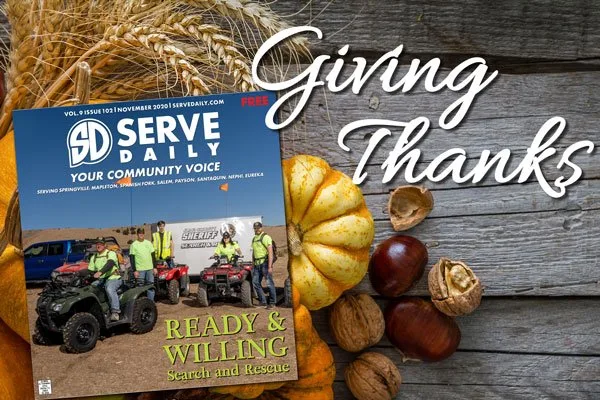Thanksgiving is a time when families and individuals across the nation show their gratitude for the people, places and things they hold dear. This year, feeling grateful may be a little more challenging than in previous years, but it’s still possible.
In fact, if you look at the very first Thanksgiving, it was celebrated on the heels of one of the most dismal years in early American history. Only 53 pilgrims were in attendance. They were the only surviving colonists to live through the first deadly winter in the New World after their long journey on the Mayflower.
After the gloomy, heart-wrenching winter that reduced the 102 colonists down to just 53, the pilgrims celebrated the first Thanksgiving along with 90 members of the local Wampanoag Indian tribe. The tribe generously provided the pilgrims with enough food to supplement their own harvest and help them survive through the next winter.
The exact date of the first Thanksgiving isn’t known, but it most likely occurred between September and November of the year 1621, after the fall harvest. The celebration included feasting and recreational activities, and it lasted three days.
The colonists and Wampanoag tribe didn’t serve potatoes, pies or other modern Thanksgiving Day staples. Instead, they enjoyed fowl and venison. They most likely had other types of food that are not specifically mentioned in historical records.
It’s worth noting that the first Thanksgiving was actually a fall harvest celebration. In July of 1623, the pilgrims held a religious day of prayer and fasting that they called a “thanksgiving.” In the late 1600s, the two events melded together and eventually became Thanksgiving as we know it.
This year has been harder on many families than any other year in recent memory. Lives have been disrupted, loved ones have been lost and many feel uncertainty for the future.
But few people understand the desolation of loss, fear and sickness better than the pilgrims of 1621. And yet, despite the cruelty of their circumstances, they chose to create a day of thanks in which they focused on their blessings and the kindness others showed to them.
Though COVID-19, economic uncertainty and growing civil unrest have cast a pall over the year 2020, we still have much to be thankful for. If you’re feeling down, the very act of showing gratitude can work wonders for your mental health.
According to research conducted by Dr. Martin E.P. Seligman, a psychologist at the University of Pennsylvania, showing gratitude is directly linked to increased happiness. Though it may take effort at first, being thankful will help us all live happier, more fulfilling lives. Like the pilgrims of old, let’s pledge to fill this Thanksgiving with gratitude, optimism and love. (Peterson is a Serve Daily Contributor).



